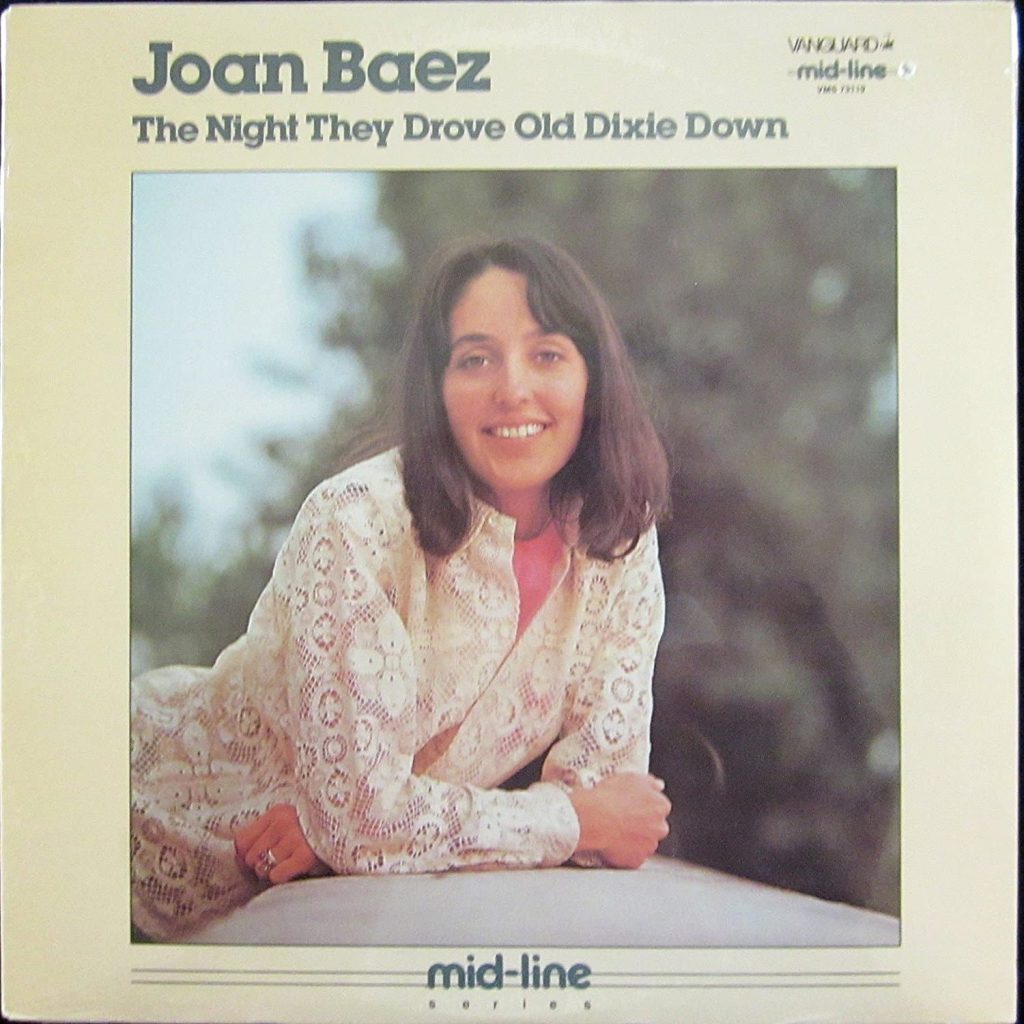
A Poignant Ballad Reflecting on the American South
In the rich tapestry of American folk music, few songs resonate as deeply as “The Night They Drove Old Dixie Down.” Originally penned by Robbie Robertson of The Band, this evocative ballad found renewed life through the soulful interpretation of Joan Baez. Released in 1971, Baez’s rendition not only climbed the charts but also etched itself into the collective memory of a generation grappling with the complexities of history and identity.
Baez’s version of “The Night They Drove Old Dixie Down” achieved remarkable commercial success. It ascended to the No. 3 position on the Billboard Hot 100 on October 2, 1971, mirroring its peak on the Cashbox Top 100 chart. Notably, it secured the No. 1 spot on the Record World Top Singles chart for the week of September 25, 1971. The single’s popularity extended beyond the United States, reaching No. 6 on the UK pop charts in October 1971. Its widespread acclaim was further solidified when it received a RIAA-certified Gold record on October 22, 1971, underscoring its significant impact and enduring appeal.
The song’s narrative transports listeners to the waning days of the American Civil War, offering a first-person account of the hardships faced by Southerners during this tumultuous period. Through the eyes of the fictional character Virgil Caine, a Confederate soldier, the lyrics poignantly depict the fall of the South and the profound sense of loss that accompanied it. References to historical events, such as General George Stoneman’s raids, lend authenticity to the tale, while the chorus encapsulates the collective mourning:
“The night they drove old Dixie down, and all the bells were ringing.”
Baez’s emotive delivery imbues the song with a haunting quality, capturing the sorrow and resilience of those who endured the war’s devastation. Her clear, powerful vocals convey a deep empathy for the song’s subjects, bridging the gap between history and contemporary listeners. This connection is further enhanced by the song’s arrangement, which blends traditional folk elements with a modern sensibility, creating a timeless sound that resonates across generations.
The decision to cover “The Night They Drove Old Dixie Down” was a departure from Baez’s typical repertoire, reflecting her willingness to explore diverse narratives within the American experience. By embracing this Southern perspective, she invited audiences to confront the multifaceted nature of history, acknowledging the pain and humanity on all sides of conflict. This nuanced approach fostered a deeper understanding of the complexities inherent in the nation’s past, prompting reflection and dialogue among listeners.
For many, Baez’s rendition serves as a poignant reminder of the enduring impact of the Civil War on American identity. The song’s themes of loss, change, and resilience continue to resonate, offering solace and insight to those grappling with the legacies of history. As the bells ring out in the chorus, they echo the collective memory of a nation, honoring the struggles of the past while inspiring hope for reconciliation and understanding.
In revisiting “The Night They Drove Old Dixie Down,” listeners are invited to reflect on their own connections to history and the ways in which music can serve as a bridge between past and present. Baez’s heartfelt performance stands as a testament to the power of song to capture the essence of human experience, transcending time and place to touch the hearts of all who hear it.